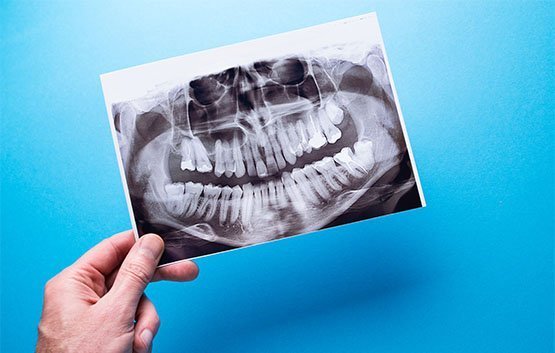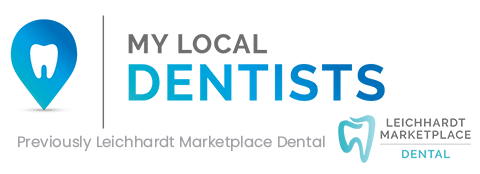Bone Grafting

Bone Grafting Leichhardt
Bone grafting is usually required when there is not enough bone available to support dental implants.
Bone grafting procedures attempt to correct a deficiency or defect in a patient’s jawbone. This procedure can be done by using bone taken from the patient, or by using materials, known as “bone substitutes”.
Bone volume loss can be caused by a variety of factors:
- Infection (decay)
- Facial trauma and dental injury
- Gum (periodontal) disease
If the patient chooses to use their bone, it is normally extracted from behind the teeth, the chin, or from other areas in the body such as the hip or shin.
Using your bone for a bone graft will require having a donor site and surgical site. This can cause additional healing time (and pain).
However, many prefer using their bone in a bone graft despite these effects.
Types of Bone Grafting
Bone Grafting
Bone grafting involves adding bone or bone grafting material to the affected area. Bone grafting materials can be easily gotten from other areas of the jaw or from pre-packaged bone graft mineral.
Socket Grafting
When a tooth is removed, the bone around the extraction site tends to collapse inward and shrink. However, bone can be preserved and even enhanced by adding bone material, with a dissolving collagen sponge, to the site.
Sinus Grafting
The maxillary sinuses are empty pockets at the back of your cheeks, above the upper back teeth. Sometimes, after an upper molar is removed and the socket heals, a thin layer of bone will stay underneath the sinus. If the sinus floor is thin, bone grafting to the area may be required before implants can be placed.
Ridge Augmentation
When teeth have been missing for a long time, the bone left in the area may be too narrow and/or too short for dental implants. In these cases, small and fitted grafts can be placed at the sites to provide adequate bone thickness and height.
Bone Grafting Procedure
The bone grafting procedure usually needs local anaesthesia only, though oral or IV sedation can also be used for a higher state of relaxation.
Since a small incision is made in your gums to access the bone that will receive the graft, you may feel pain in the site after the surgery.
This can usually be treated by over-the-counter anti-inflammatory medications and painkillers, and regular ice therapy.
Then, over the succeeding months, your body will replace the graft with your own bone, reversing progressive bone loss you have experienced.
Bone Grafting in Leichhardt
Bone grafting procedures performed at My Local Dentists Leichhardt are guaranteed safe and effective.
Your treatment plan is carefully planned and made only for you!
Request an appointment with your dentist in Leichhardt today.
Call us on (02) 9171 0840 or request your appointment online.
We are located at Shop 48, Leichhardt Marketplace Shopping Centre, 122-138 Flood Street in Leichhardt.
